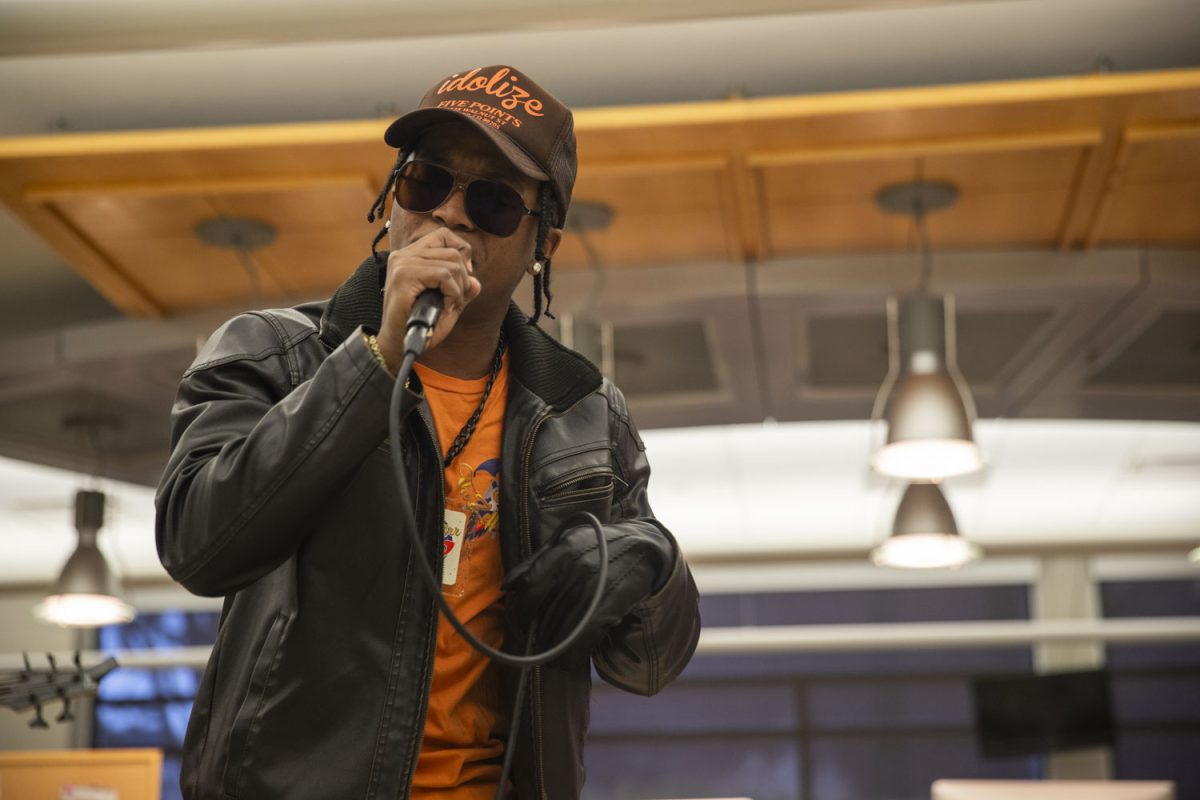By the time they are 18, many budding musicians spend time performing in garage bands covering the music of Fall Out Boy or Blink-182. Not Wolfgang Amadeus Mozart.
He didn’t spend his time at that age practicing power chords (although he could play some powerful chords) — he composed classic operas, among some other bits.
The Englert Theater, 221 E. Washington St., will showcase one of them on Friday. Mozart’s opera La finta giardiniera will open, a production of the UI Martha-Ellen Tye Opera Theater. Admission ranges from $5 to $20.
The opera follows the story of Count Belfiore and his lover, Violante, after a lover’s quarrel that ends with Violante being stabbed and left for dead by the Count. Violante disguises herself as the gardener Sandrina in an attempt to find redemption and forgiveness.
Gary Briggle, a visiting associate professor and the UI director of opera, is no stranger to Mozart’s work.
“My first big operatic performance was in Mozart’s opera The Abduction from the Seraglio, and I played Pedrillo, the industrious servant,” he said. “It was an amazing and unforgettable experience.”
So he decided to bring the magic of Mozart to the UI.
“The music, of course, is superb even though Mozart was only 18 when he wrote it,” Briggle said.
Many saw Mozart’s operas as a refreshing shift away from the dramas of antiquity that were the standard of his time. Instead of focusing on stories of the Roman gods, Mozart combined high drama with the low comedy of the Italian street theater to create original compositions with a new kind of character.
“Mozart was only interested in three-dimensional human beings who are neither good nor bad, neither black nor white, but are complex,” Briggle said. “Like Shakespeare in the theater, nobody does it better than Mozart. He is somehow able to capture in music this fascinating complexity and exalted transformation of the human spirit.”
The opera has much cultural significance in the musical world. La finta giardiniera was the first major success the young composer had; he then won a commission to write a German version of the piece. This second version remained in the repertoire until 1979, when the original Italian version was found in Rome.
At the beginning of the academic year, 50 students auditioned for the production, and seven were cast. Sara Butwinick, a master’s student in vocal performance, is the lead, Violante/Sandrina.
“The biggest challenge with this opera was its being in Italian,” she said. “None of the performers are fluent in Italian or have even studied Italian a whole lot. We had to make it seem as if we totally understood everything.”
Briggle chose this opera because of its accessibility and challenge to the young performers he cast. However, he found a different sort of hurdle in rehearsals.
“Learning how to sing in corsets has been interesting, but we’re getting used to that, too,” he said.
They are also adjusting to a smaller space in the Englert, a post-flood performance stage for the school.
“We will sell about 300 seats, and that gives everyone in the audience an opportunity to have a really intimate encounter with the production,” he said.
The orchestra pit is also smaller than normal for an opera, he noted.
Although many might be apprehensive about opera, Briggle encourages people to see the performance.
“I just want to say to everyone who may intimidated by Mozart in Italian and the big ‘Opera’ word: It’s a wonderful, comic piece,” he said. “I invite them to take a chance on it.”






